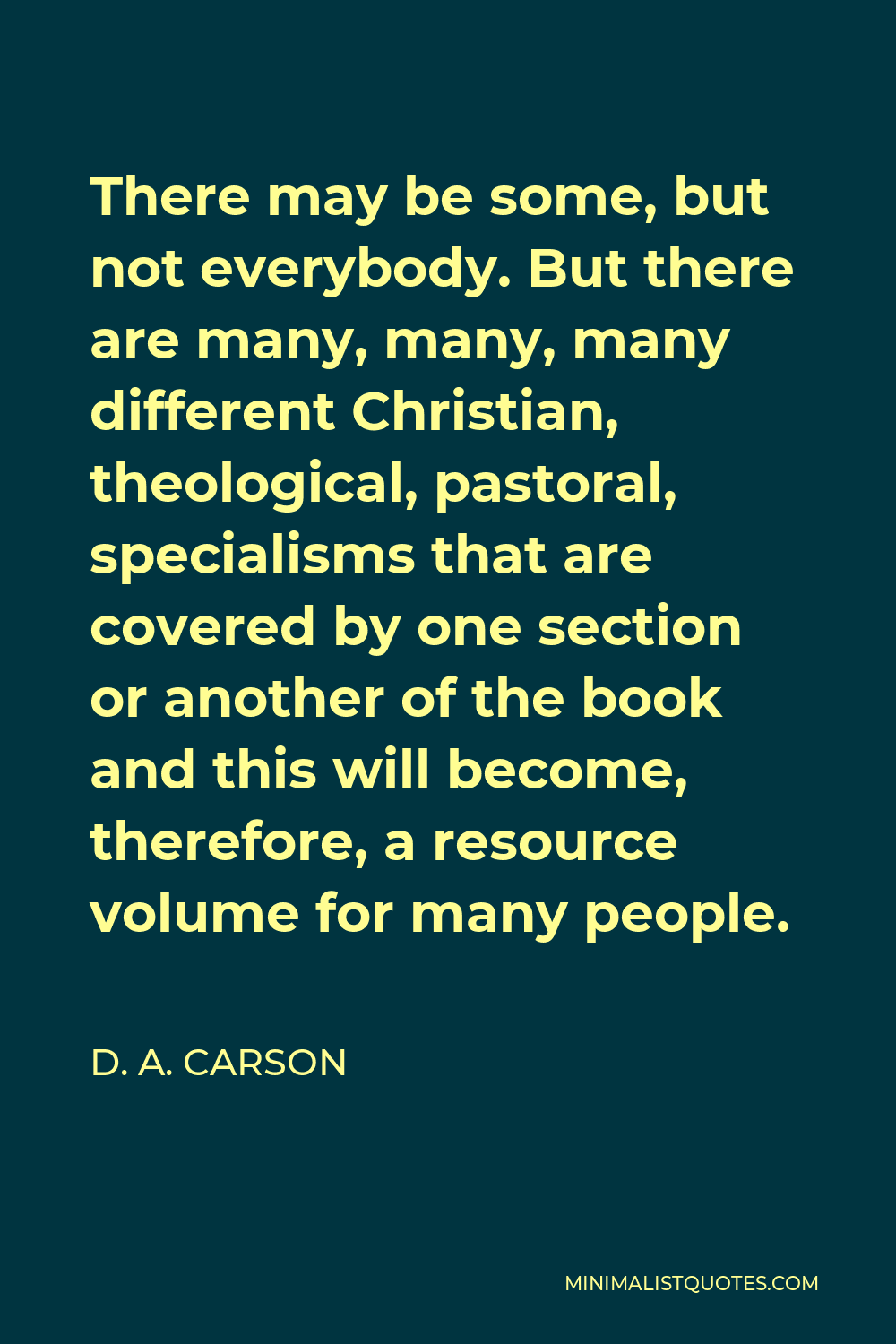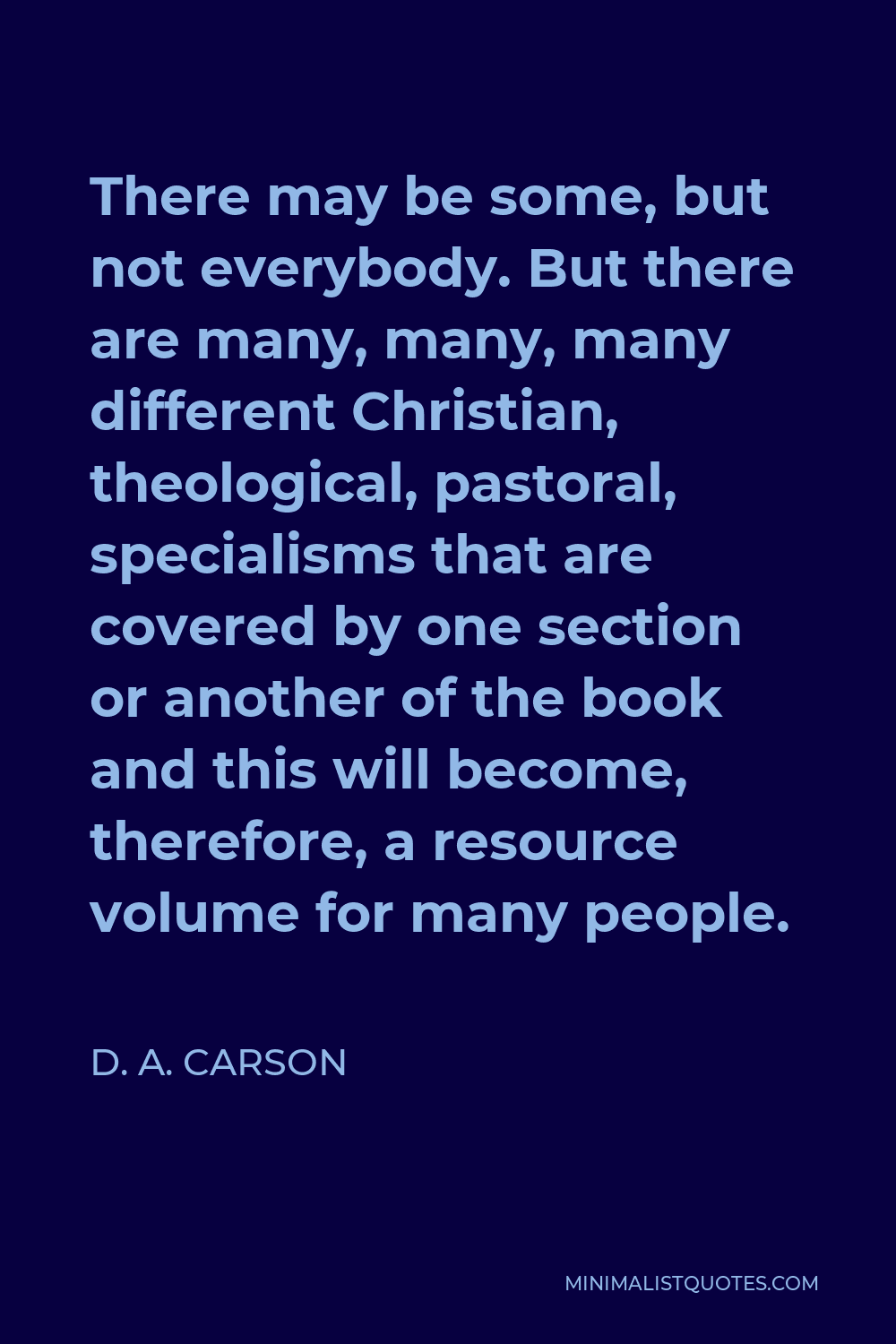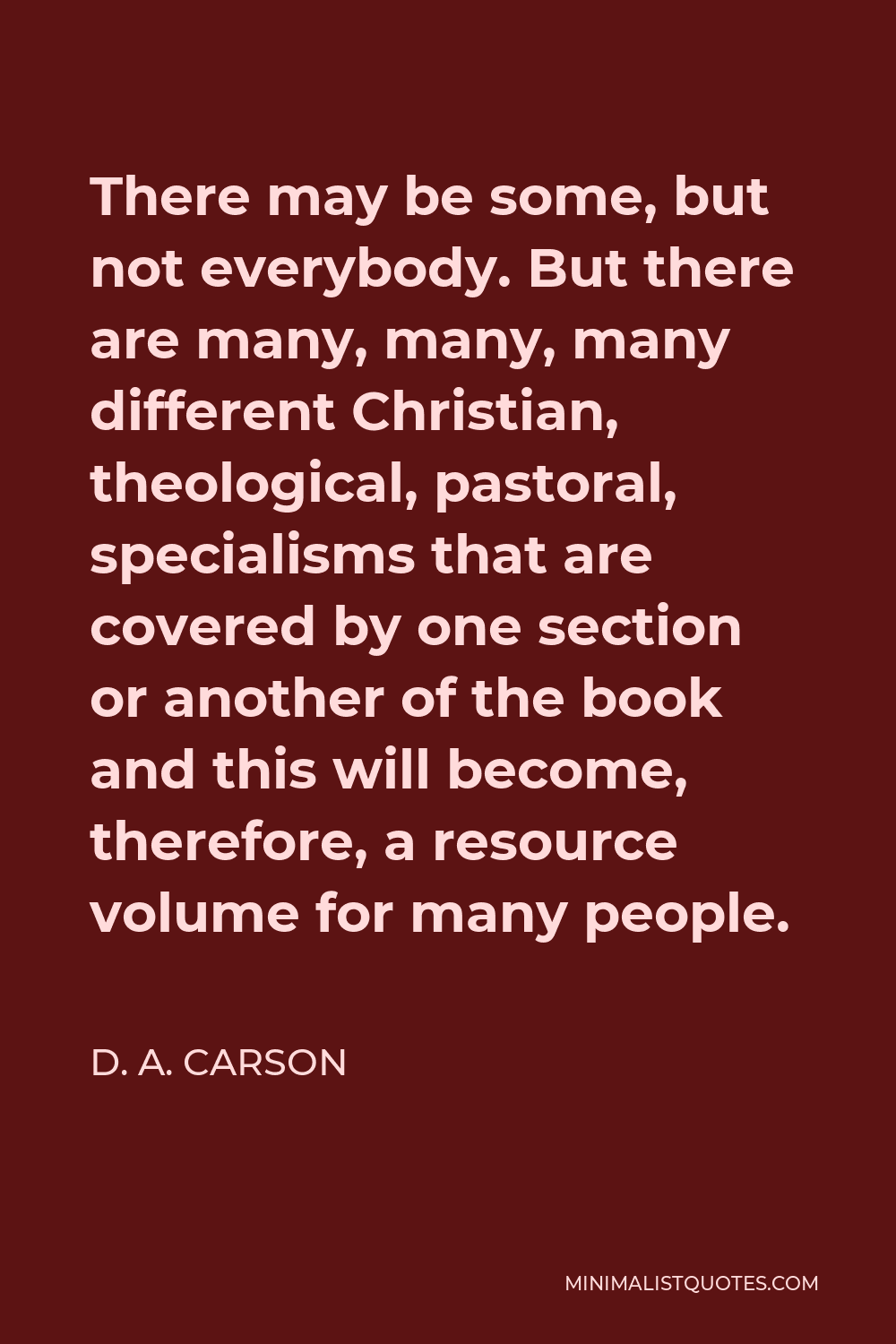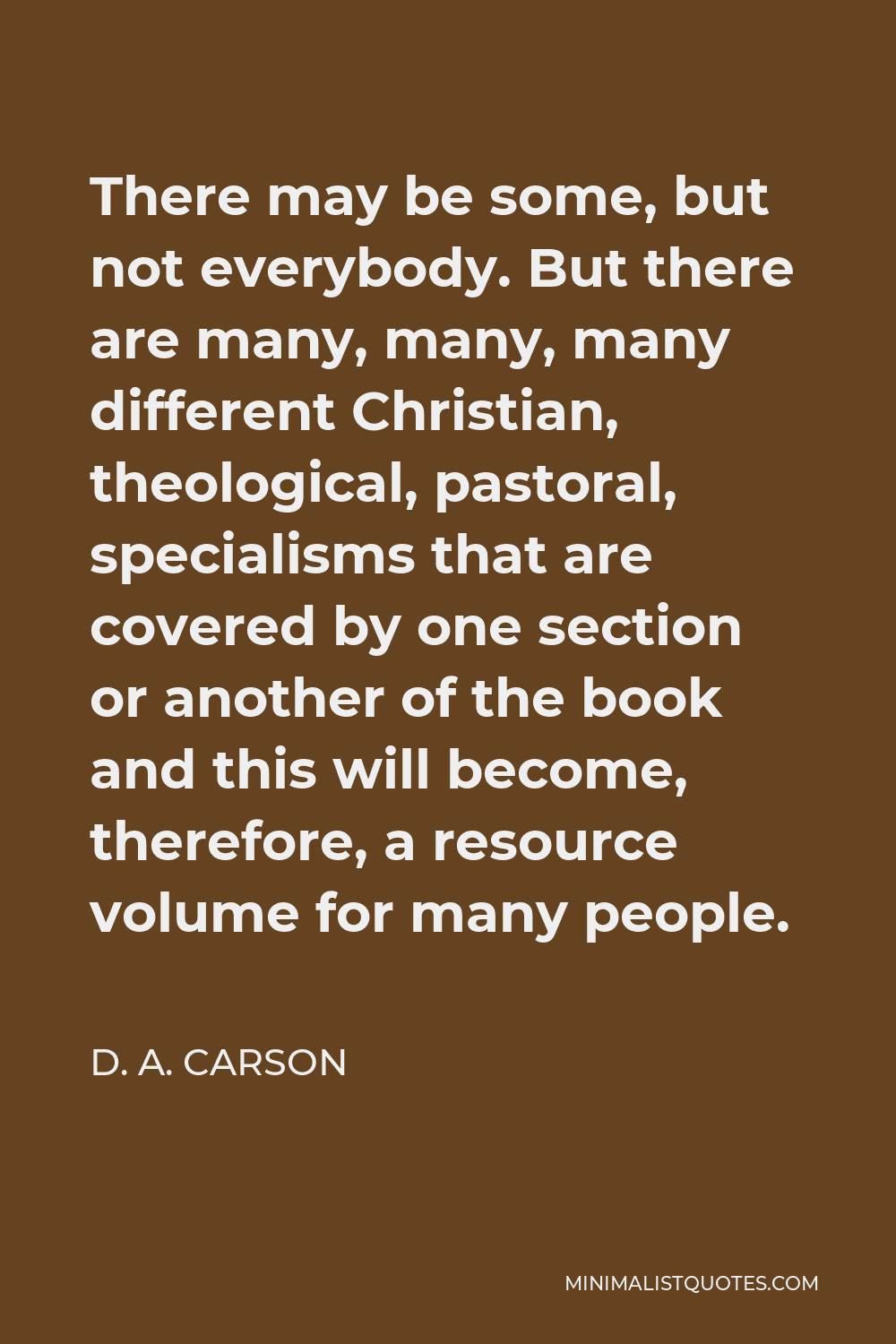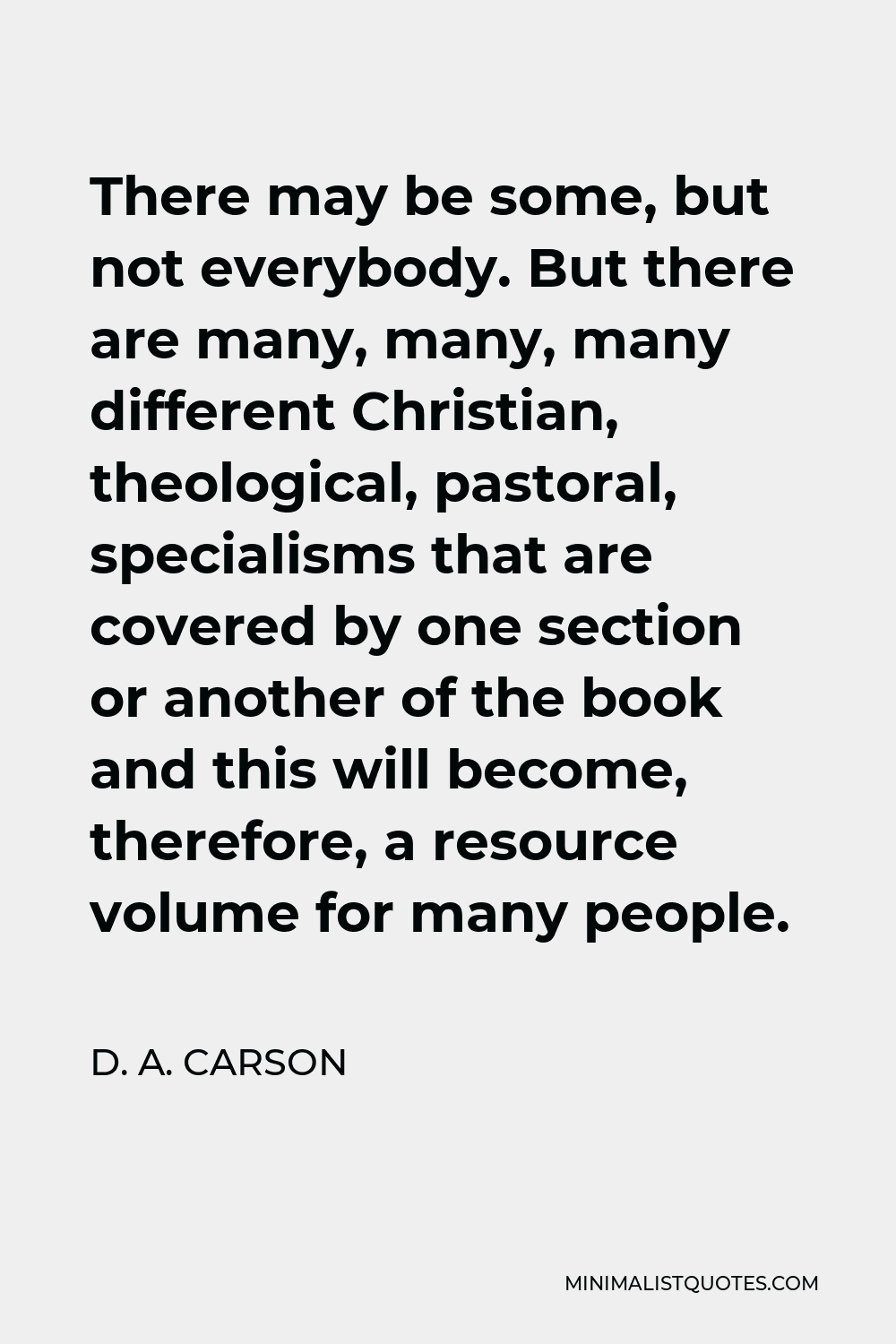The Christian’s whole desire, at its best and highest, is that Jesus Christ be praised. It is always a wretched bastardization of our goals when we want to win glory for ourselves instead of for him.
D. A. CARSONThere may be some, but not everybody. But there are many, many, many different Christian, theological, pastoral, specialisms that are covered by one section or another of the book and this will become, therefore, a resource volume for many people.
More D. A. Carson Quotes
-






-





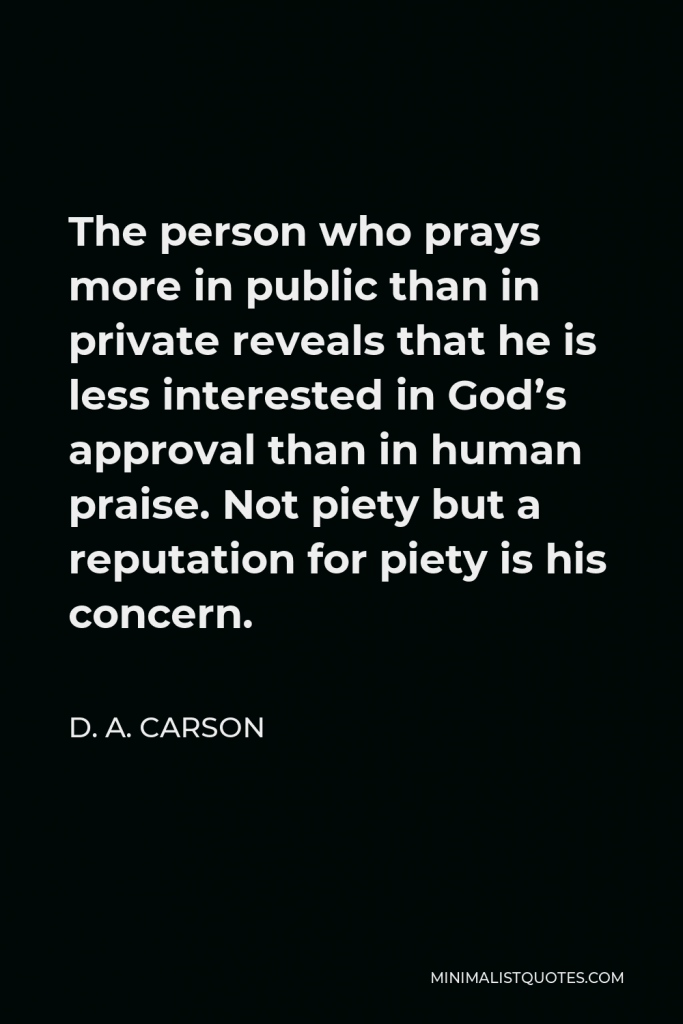

The person who prays more in public than in private reveals that he is less interested in God’s approval than in human praise. Not piety but a reputation for piety is his concern.
D. A. CARSON -





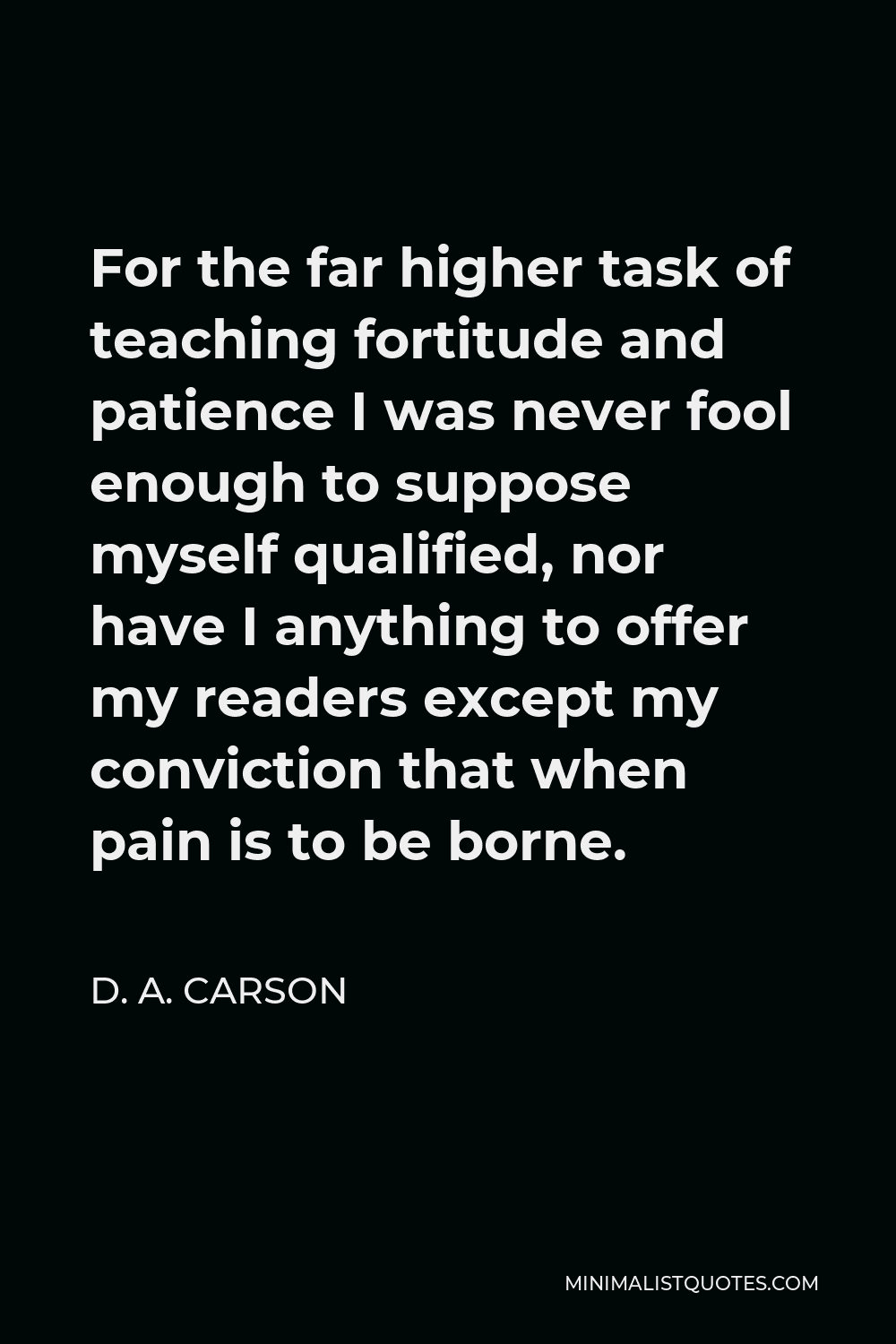
For the far higher task of teaching fortitude and patience I was never fool enough to suppose myself qualified, nor have I anything to offer my readers except my conviction that when pain is to be borne.
D. A. CARSON -






If God had perceived that our greatest need was economic, he would have sent an economist. If he had perceived that our greatest need was entertainment, he would have sent us a comedian or an artist.
D. A. CARSON -





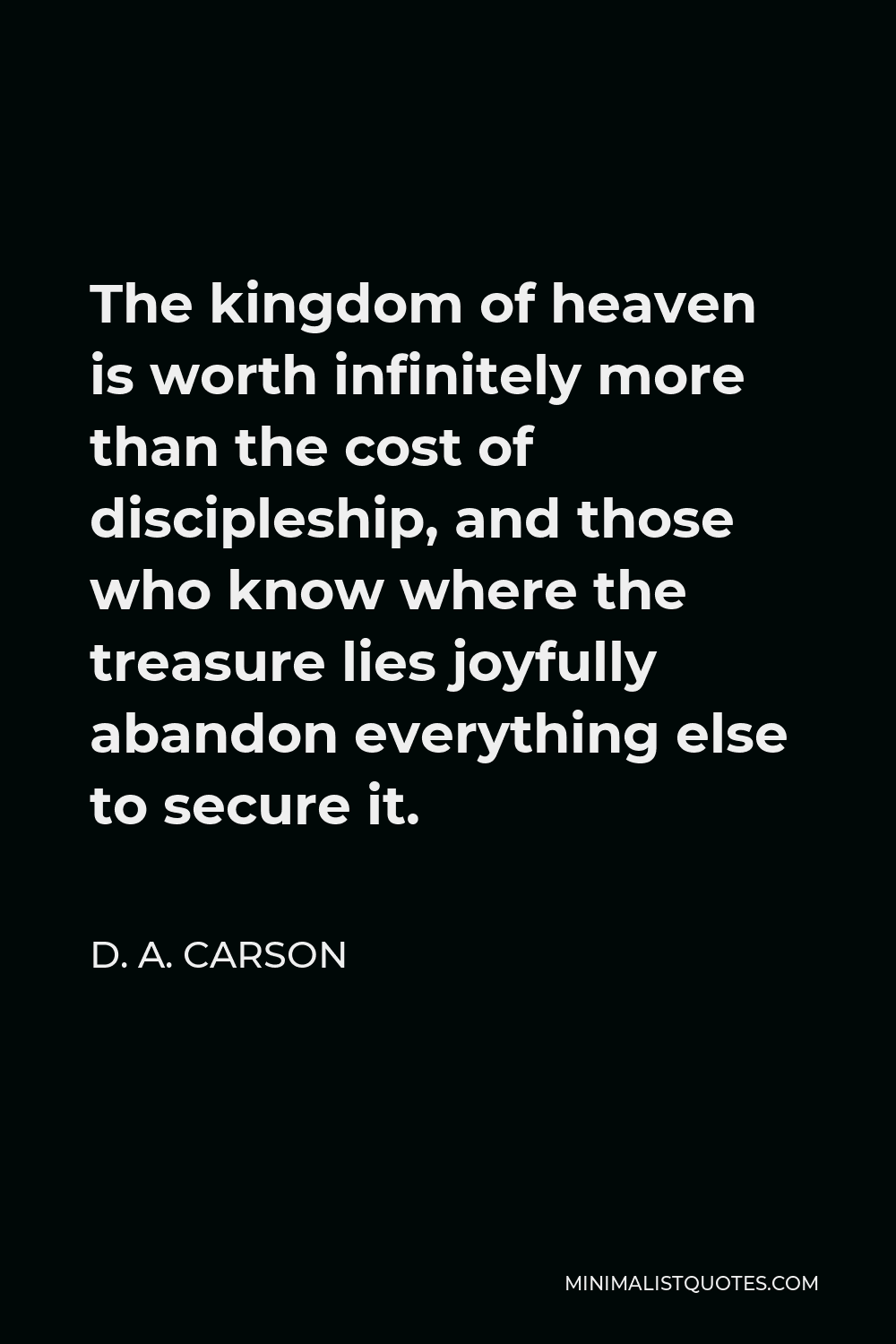
The kingdom of heaven is worth infinitely more than the cost of discipleship, and those who know where the treasure lies joyfully abandon everything else to secure it.
D. A. CARSON -





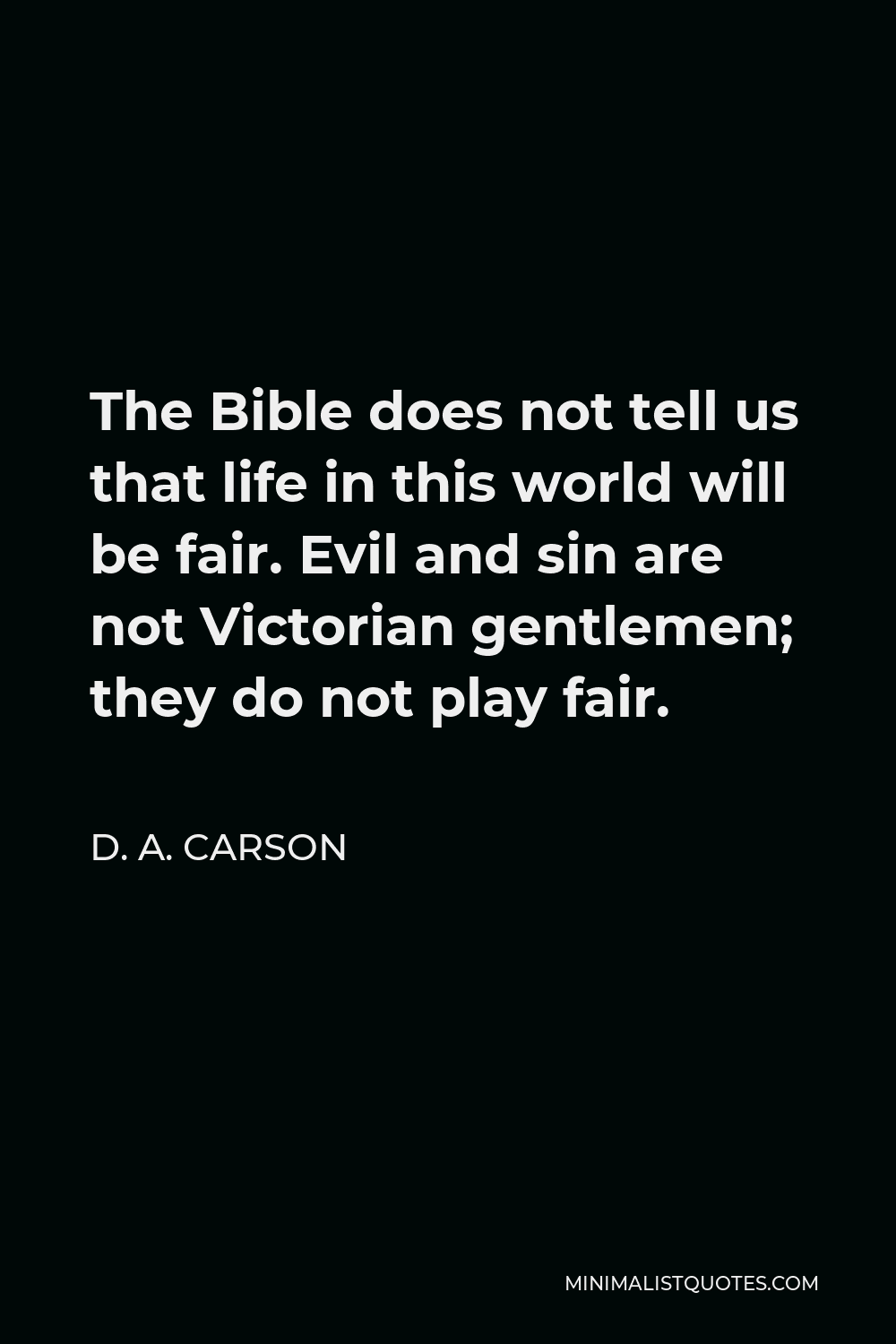
The Bible does not tell us that life in this world will be fair. Evil and sin are not Victorian gentlemen; they do not play fair.
D. A. CARSON -





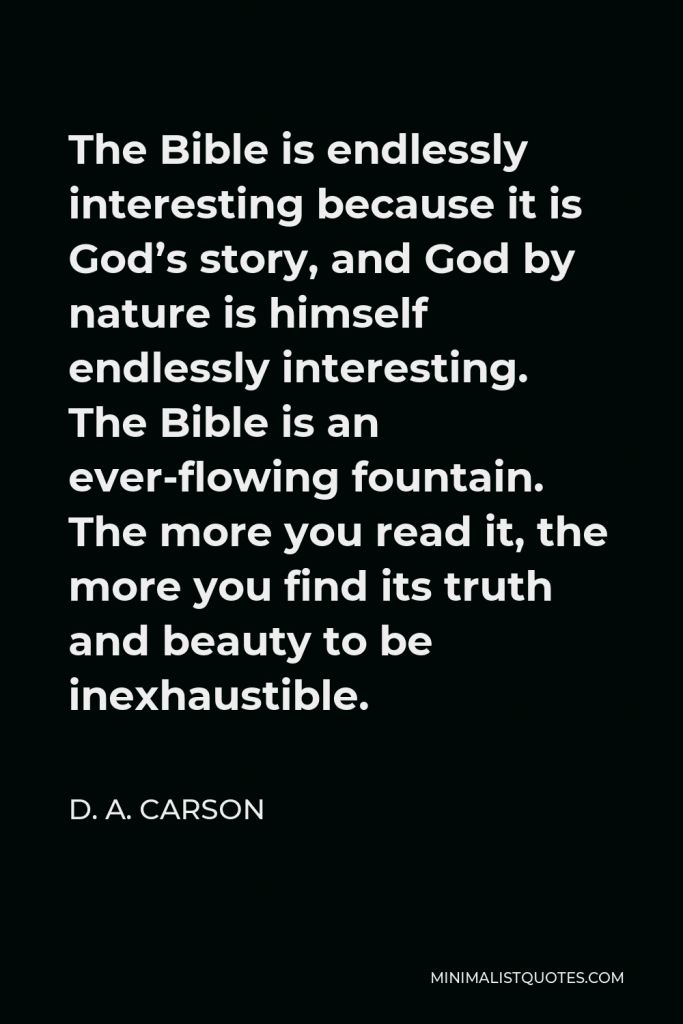

The Bible is endlessly interesting because it is God’s story, and God by nature is himself endlessly interesting. The Bible is an ever-flowing fountain. The more you read it, the more you find its truth and beauty to be inexhaustible.
D. A. CARSON -





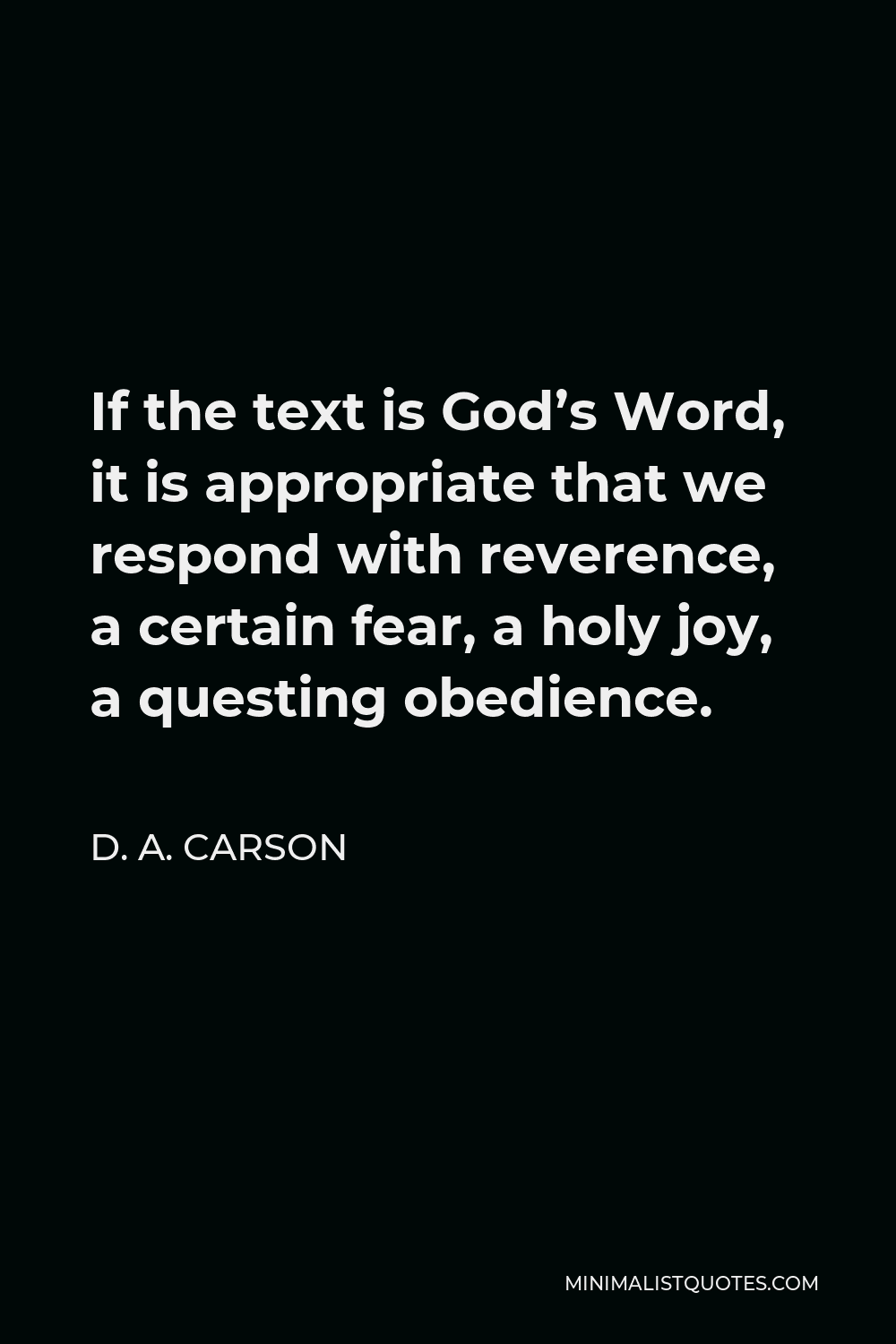
If the text is God’s Word, it is appropriate that we respond with reverence, a certain fear, a holy joy, a questing obedience.
D. A. CARSON -






Christians come together because they have all been loved by Jesus himself. They are a band of natural enemies who love one another for Jesus’ sake.
D. A. CARSON -





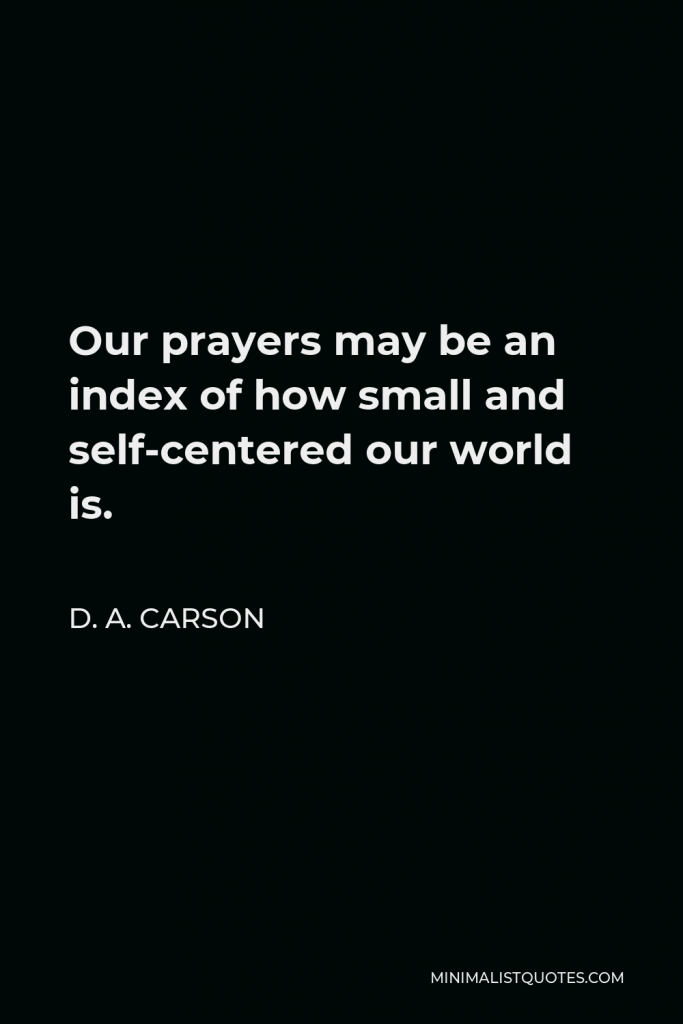

Our prayers may be an index of how small and self-centered our world is.
D. A. CARSON -





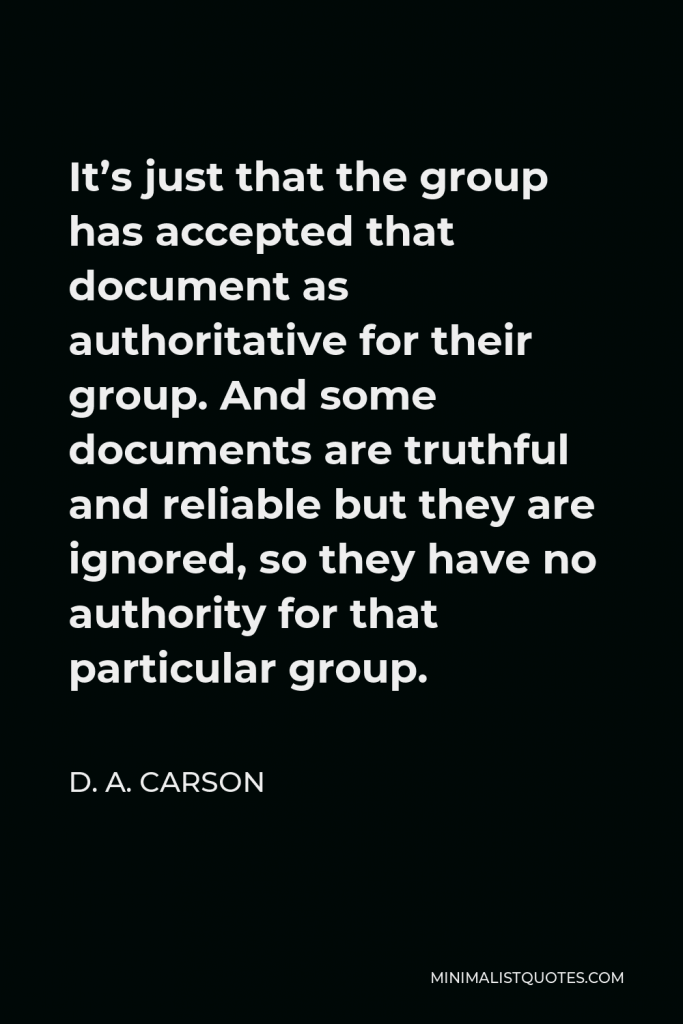

It’s just that the group has accepted that document as authoritative for their group. And some documents are truthful and reliable but they are ignored, so they have no authority for that particular group.
D. A. CARSON -






There is a certain kind of maturity that can be attained only through the discipline of suffering.
D. A. CARSON -





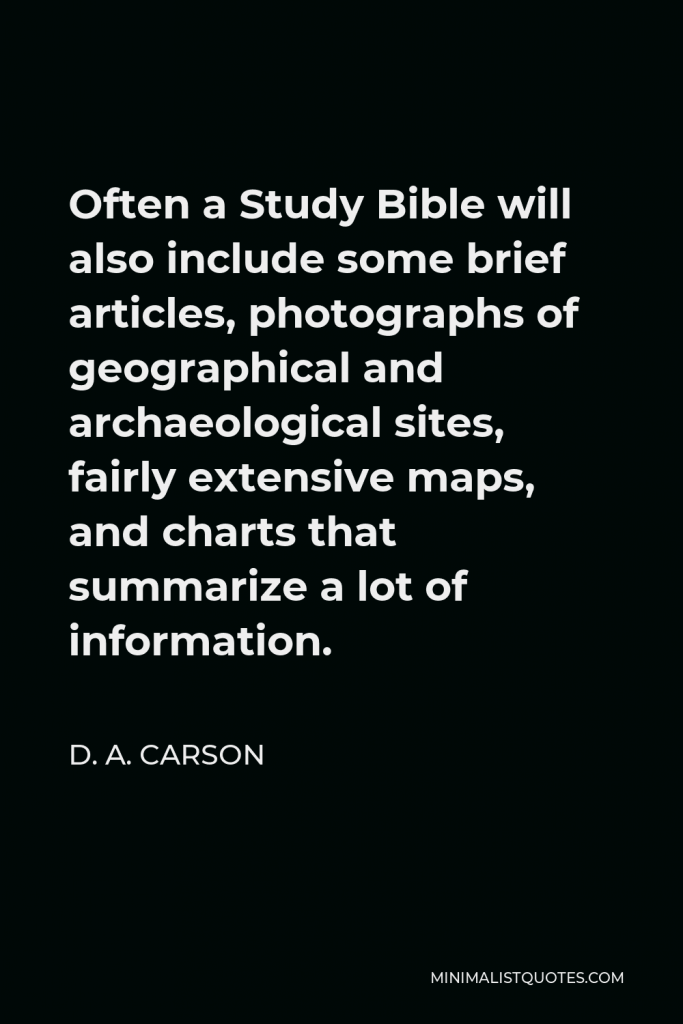

Often a Study Bible will also include some brief articles, photographs of geographical and archaeological sites, fairly extensive maps, and charts that summarize a lot of information.
D. A. CARSON -





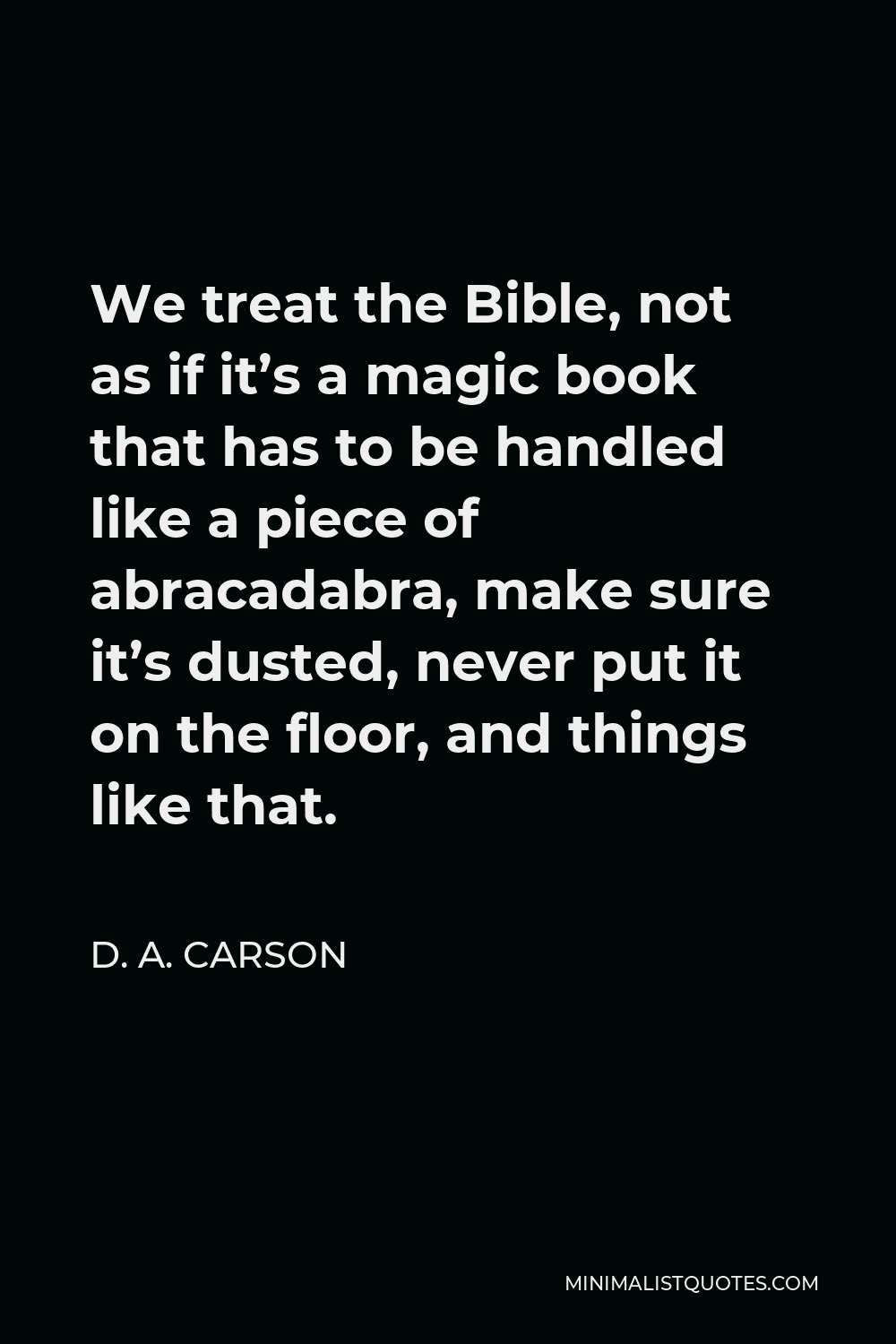
We treat the Bible, not as if it’s a magic book that has to be handled like a piece of abracadabra, make sure it’s dusted, never put it on the floor, and things like that.
D. A. CARSON -





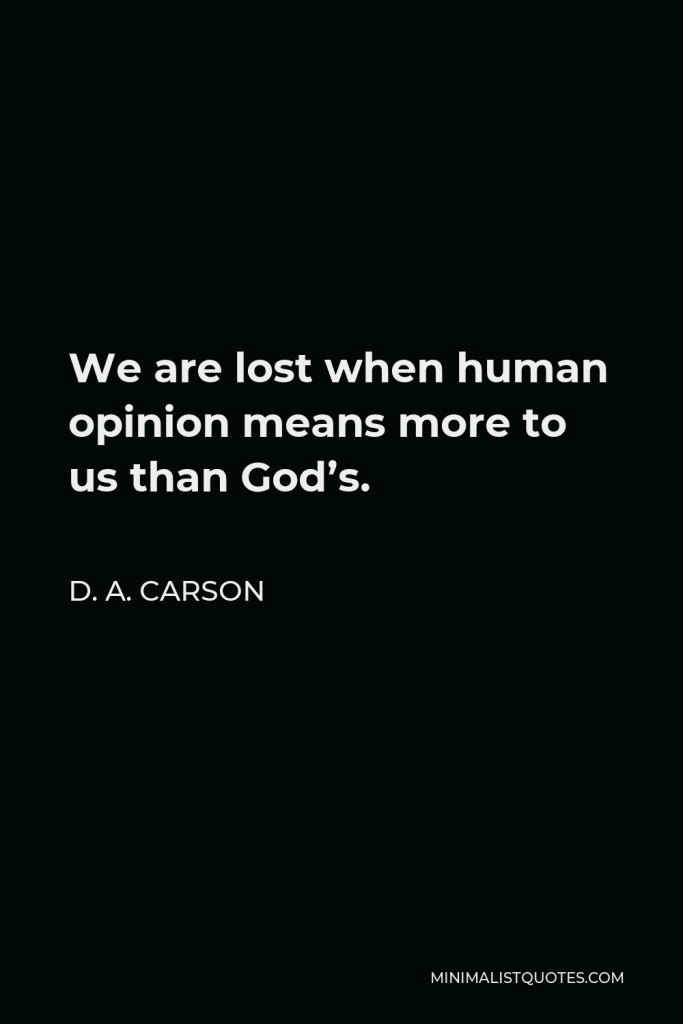

We are lost when human opinion means more to us than God’s.
D. A. CARSON -






Love the church because Jesus loves it.
D. A. CARSON

